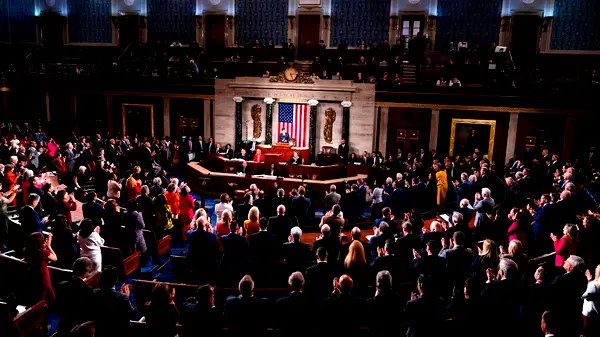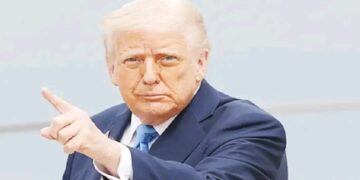A bipartisan bill introduced in the United States Congress would place visa bans and asset freezes on the Miyetti Allah Cattle Breeders Association of Nigeria (MACBAN) and its sister organization, Miyetti Allah Kautal Hore. The legislation, sponsored by Rep. Smith Christopher, follows President Donald Trump’s recent redesignation of Nigeria as a “Country of Particular Concern” (CPC) under the International Religious Freedom Act.
The bill cites “particularly severe violations of religious freedom” against Christians in Nigeria, including attacks on churches and Christian communities in several northern and central states.
In addition to the Miyetti Allah groups, the measure adds “Fulani‑ethnic militias” operating in Benue and Plateau states to the U.S. list of Entities of Particular Concern (EPCs). Other EPCs already named include Boko Haram, ISIS‑West Africa, ISIS‑Sahel, the Houthis and the Taliban.
Supporters argue the sanctions are needed to hold perpetrators accountable and to signal U.S. commitment to protecting religious minorities worldwide.
The Federal Government said it remains “calm and not in any panic mode” over the U.S. stance. Minister of Information Mohammed Idris told journalists that Nigeria has opened channels of discussion with Washington and remains committed to the safety of all citizens, regardless of religion or ethnicity.
President Bola Tinubu, responding to Trump’s threat of possible military action, reiterated that his administration will “defeat terrorism” and continue diplomatic engagement with international partners. He emphasized that Nigeria’s security challenges are being addressed through a combination of military action, development programmes and dialogue with religious leaders.
Finance Minister Wale Edun reported that the government’s reform agenda is sustaining investor confidence and delivering economic gains, even as the country grapples with security threats.
The proposed “Nigeria Religious Freedom Accountability Act of 2025,” introduced earlier by Sen. Ted Cruz, calls for targeted sanctions against Nigerian officials who “promoted, enacted, or maintained blasphemy laws.”
The current bill, now under consideration in both chambers of Congress, would also freeze assets of individuals linked to the targeted groups and bar them from entering the United States.
According to a New York Times report, the U.S. Africa Command has prepared three operational options for possible action in Nigeria: a “heavy” deployment involving an aircraft‑carrier strike group and long‑range bombers; a “medium” option using MQ‑9 Reaper and MQ‑1 Predator drones for targeted strikes; and a “light” approach focused on intelligence sharing and joint operations with Nigerian forces.
– Senior Pentagon officials caution that limited airstrikes or drone operations are unlikely to end the insurgency without a broader, full‑scale campaign, an approach Washington has not yet embraced.
Critics of the sanctions note that the Nigerian government attributes the violence to broader social, political and economic factors rather than religion alone. They warn that punitive measures could strain diplomatic ties and hamper humanitarian cooperation.
Supporters, however, contend that the United States must act decisively when religious freedom is under threat, arguing that the proposed measures target specific non‑state actors rather than the Nigerian state itself.
The bill will be debated in the House and Senate. Its passage could lead to concrete sanctions on MACBAN, Kautal Hore and associated Fulani militias, affecting their ability to operate internationally and access financial systems.
Nigeria’s government says it will continue to engage with the United States through diplomatic channels, emphasizing that the country remains “stable” and committed to protecting the rights of all its citizens.
The outcome o f the congressional deliberations will likely shape the next phase of U.S.–Nigeria relations, especially regarding security cooperation, human‑rights dialogue and the broader fight against terrorism in West Africa.
f the congressional deliberations will likely shape the next phase of U.S.–Nigeria relations, especially regarding security cooperation, human‑rights dialogue and the broader fight against terrorism in West Africa.








